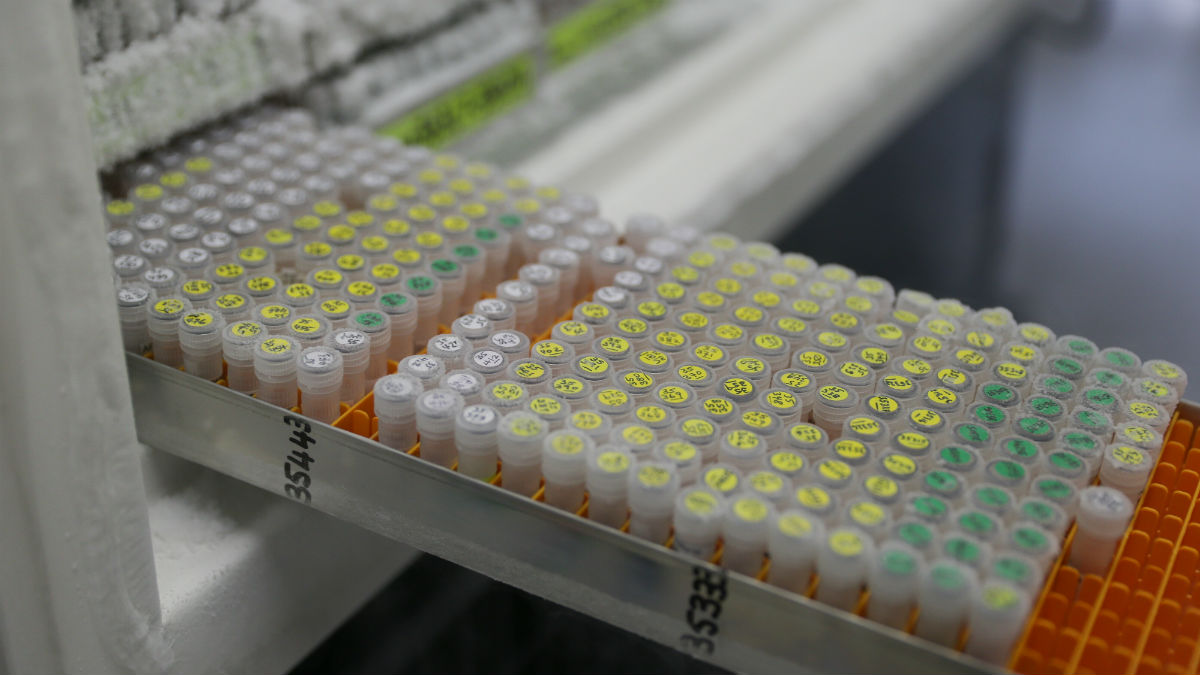Terror suspects' DNA records deleted on a technicality
More than 800 files wrongly destroyed after police chiefs fail to submit paperwork in time

A free daily email with the biggest news stories of the day – and the best features from TheWeek.com
You are now subscribed
Your newsletter sign-up was successful
Fingerprints and DNA files identifying as many as 800 people suspected of terror offences have been allowed to expire due to a bureaucratic error.
The files, containing valuable information on potential terrorists, were thrown out because the correct paperwork had not been submitted, the Daily Telegraph reports.
Under the current system, forensic profiles of suspects who have not been convicted of a crime automatically expire after six months. However, if the information is considered important to national security, senior police officers can apply for a national security determination to keep the data on file indefinitely.
The Week
Escape your echo chamber. Get the facts behind the news, plus analysis from multiple perspectives.

Sign up for The Week's Free Newsletters
From our morning news briefing to a weekly Good News Newsletter, get the best of The Week delivered directly to your inbox.
From our morning news briefing to a weekly Good News Newsletter, get the best of The Week delivered directly to your inbox.
In this case, as this paperwork was not submitted in time, the files were deleted.
The situation was first reported two months ago by biometrics commissioner Alastair MacGregor, who said that 450 records had been lost. But in an updated report released today, he said he believed the true figure could be as high as 810.
Of these, at least 108 would have been approved in the interests of national security, he told the BBC.
"It is obviously very important that steps quickly be taken to establish whether – and, if so, how – replacement material should be obtained from those individuals," he said.
A free daily email with the biggest news stories of the day – and the best features from TheWeek.com
The destruction of the records means that one in ten of the 8,000 suspected extremists on the government's counter-terrorism watchlist can no longer be identified by their DNA and fingerprints.
MacGregor stressed he was "broadly satisfied" that steps had been taken to correct the problem, which he blamed on delays by the police in transferring the DNA and further delays by the intelligence services in compiling assessments of suspects.
However, MPs appeared far from reassured. Labour's Keith Vaz, who chairs the home affairs committee, urged the Home Office to "get a grip" on data management before national security was compromised.
Fellow committee member Tim Loughton added that it was "quite appalling" that potentially dangerous people had fallen off the radar on a "technicality".
-
 Crisis in Cuba: a ‘golden opportunity’ for Washington?
Crisis in Cuba: a ‘golden opportunity’ for Washington?Talking Point The Trump administration is applying the pressure, and with Latin America swinging to the right, Havana is becoming more ‘politically isolated’
-
 5 thoroughly redacted cartoons about Pam Bondi protecting predators
5 thoroughly redacted cartoons about Pam Bondi protecting predatorsCartoons Artists take on the real victim, types of protection, and more
-
 Palestine Action and the trouble with defining terrorism
Palestine Action and the trouble with defining terrorismIn the Spotlight The issues with proscribing the group ‘became apparent as soon as the police began putting it into practice’
-
 How the ‘British FBI’ will work
How the ‘British FBI’ will workThe Explainer New National Police Service to focus on fighting terrorism, fraud and organised crime, freeing up local forces to tackle everyday offences
-
 How the Bondi massacre unfolded
How the Bondi massacre unfoldedIn Depth Deadly terrorist attack during Hanukkah celebration in Sydney prompts review of Australia’s gun control laws and reckoning over global rise in antisemitism
-
 Who is fuelling the flames of antisemitism in Australia?
Who is fuelling the flames of antisemitism in Australia?Today’s Big Question Deadly Bondi Beach attack the result of ‘permissive environment’ where warning signs were ‘too often left unchecked’
-
 Ten years after Bataclan: how has France changed?
Ten years after Bataclan: how has France changed?Today's Big Question ‘Act of war’ by Islamist terrorists was a ‘shockingly direct challenge’ to Western morality
-
 Arsonist who attacked Shapiro gets 25-50 years
Arsonist who attacked Shapiro gets 25-50 yearsSpeed Read Cody Balmer broke into the Pennsylvania governor’s mansion and tried to burn it down
-
 Manchester synagogue attack: what do we know?
Manchester synagogue attack: what do we know?Today’s Big Question Two dead after car and stabbing attack on holiest day in Jewish year
-
 The Miami Showband massacre, 50 years on
The Miami Showband massacre, 50 years onThe Explainer Unanswered questions remain over Troubles terror attack that killed three members of one of Ireland's most popular music acts
-
 The failed bombings of 21/7
The failed bombings of 21/7The Explainer The unsuccessful attacks 'unnerved' London and led to a tragic mistake